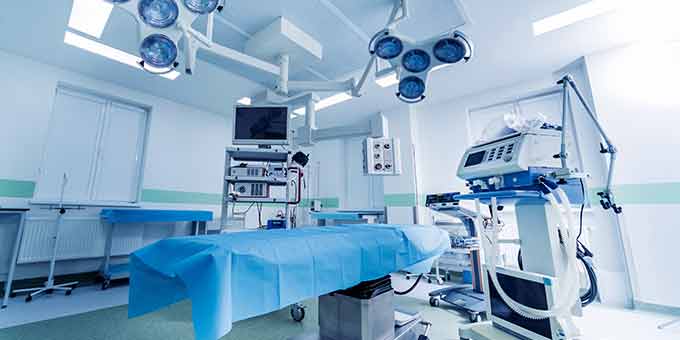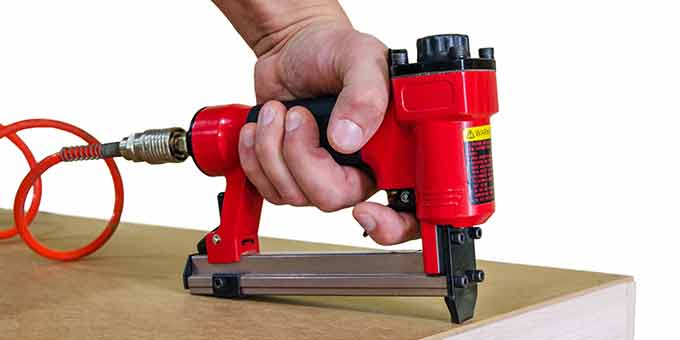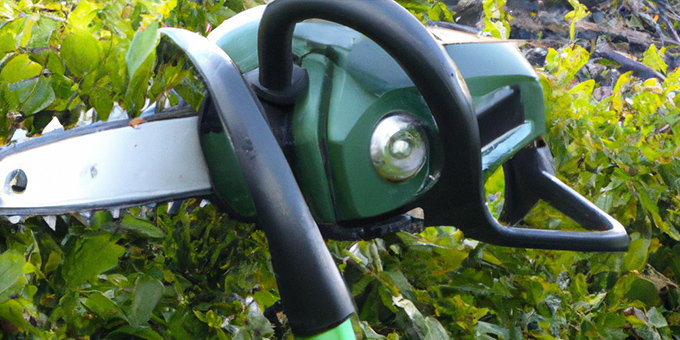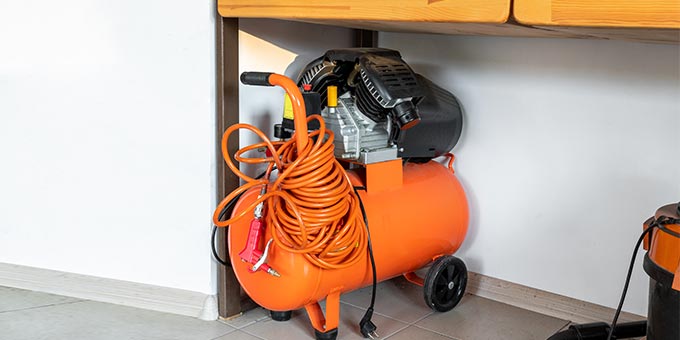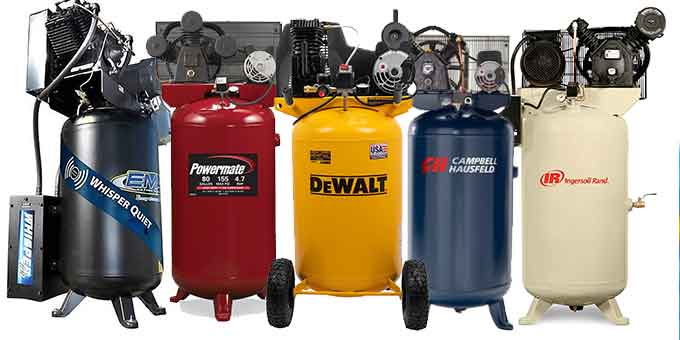In essence, medical air compressors are used for a variety of reasons, including supplying clean air to patients, powering dental and surgical tools, sterilizing equipment, and many more.
The Importance of Medical-Grade Air Compressors
Medical air compressors are some of the most critical tools used in the medical industry. Overall, medical air delivery systems must be different from traditional ones due to the higher power demand.
Considering all the new technological advancements, every medical facility is trying to get the best medical-grade air compressors to comply with the facility’s needs. However, it’s vital to understand how these work, especially considering there are different types of them on the market.
We are the Air Compressor Club, and we aim to answer all of your questions regarding medical compressors, air compressors in general, and any other compressed air system you may encounter on the market.
If you want to know more about how these medical air systems can provide value to medical facilities, keep reading for a deeper overview!
What Is a Medical Air Compressor?
As its name implies, medical air compressors are machines comprised of piped systems used to supply compressed air. The thing about these compressed air systems is that, for medical reasons, the air must be clean, dry, and odorless.
The main difference between medical air compressors and traditional compressors is that medical ones must run on continuously; this means these compressors need a particular maintenance schedule so that they can keep working correctly in designated medical facilities.
As mentioned before, the primary goal of a medical air compressor is to provide uncontaminated air at all times. According to the National Fire Protection Association and the International Organization for Standardization, a compressed air system used to deliver medical air must never come in contact with contaminant agents.
To achieve these results, medical air compressor manufacturers must ensure their machines come with an NFPA 99 certification so that people can use them.
Air Compressors in the Medical Field
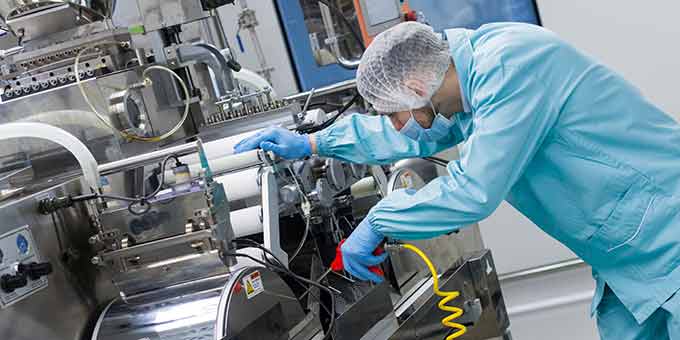
These compressors are mostly used in medical and dental fields, typically to power up monitoring equipment, respiratory equipment, surgical instruments, and many other things medical professionals may need to use while they’re working.
It’s easy to see why it’s critical that these air compressors never fail to work on medical facilities. The slightest error could cause problems with respiratory equipment, for example, jeopardizing a patient’s life.
In the dental industry, these machines are used to power up most of the tools used to work. Logically, if the compressor doesn’t work correctly, the dentist may have a really hard time working. In a worst-case scenario, the dry air coming out of the compressor could be mixing with contaminated agents, which would then be going into the patient’s mouth, causing a plethora of different health hazards.
Overall, medical compressed air systems are used for the following factors:
Powering up laboratory equipment – including oxygen generation, nitrogen generation, chiropractic tables, x-rays, and more.
Powering hand-held medical tools – including drilling, puncturing, and other tools.
Using clean air infiltration or the duct system – as mentioned before, medical facilities must be as clean as possible, so it’s vital for these machines to produce clean air at all times.
Sterilizing equipment – thanks to the power of air compressors, medical experts can use these machines to sterilize and clean their tools efficiently.
Breathing – some patients in medical buildings may need clean air since they cannot breathe by themselves. In those cases, medical air compressors can provide clean air without any problems
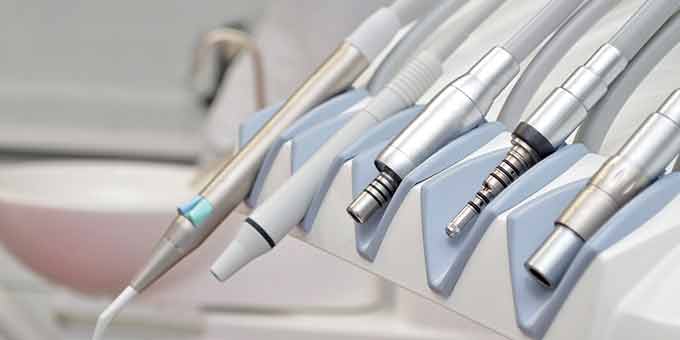
How Do Medical Air Compressors Work?
A medical air compressor works similarly to regular compressors but with some extra touches. Overall, this machine is comprised of pipe systems designed to supply air. Once these machines are turned on, the compressor will force large amounts of air into the storage tank. Some air compressors work without a tank, but considering the power, a medical compressed air system must supply, it’s not common to see these models in a medical facility.
The more air enters the tank, the more pressure that builds within it. Thanks to this effect, the kinetic energy produced can easily power the medical tools necessary to work.
Keeping Regular Maintenance
As mentioned before, a medical air compressor must get regular service and maintenance for it to work correctly, regardless of what type you’re working with. Every machine that works with compressed air has parts that wear down over time, so make sure you have a team that is continually keeping an eye out for your medical air compressor.
Some medical facilities purchase backup systems just in case one of the primary machines fails. While this is an excellent alternative, it can certainly be much more expensive than maintaining a single machine.
Due to the power that a medical air compressor produces, these machines tend to be a bit loud. However, some manufacturers have been able to produce quieter air compressors. It doesn’t mean that these machines will be fully quiet once they’re operating, but the fewer decibels you get while working, the better.
Medical Air Compressor Types
Now that you know how a medical air compressor works, it’s time to take a look at all the different alternatives you can purchase for your medical building.
Oil-Free Air Compressors
First, it’s vital to note that most medical air compressors come with oil-free models. This is because there’s a lower chance of these machines getting in contact with contaminating agents since they don’t house oil.
Some compressors may use oil, but it’s important to note that these varieties are more likely to produce contaminated air, which can be fatal for medical purposes. If you want to go with the safest route, try to go for oil-free compressors.
Lubricated Reciprocating Air Compressors
Reciprocating compressors are best used in larger facilities that require a constant supply of gases or medical air. Overall, reciprocating air compressors are more durable and provide much more volume than other variants. Logically, reciprocating compressors are a bit more expensive than other models on this list.
You can get these machines in either an oil-less or an oil-flooded model. The oil-less model is typically used for delivering gas and medical air, and the one that uses oil is used to power up instruments.
Overall, these compressors come with engines at 5 HP up to 500 HP, depending on your needs. If your goal is to only power up surgical tools, a breathing apparatus to keep a patient breathing, or others, this model may be an excellent alternative to consider.
Oil-Free Scroll Compressors
This air compressor provides compressed air by combining a stationary scroll and a moving one. If you’re planning on calibrating tools and powering up ventilators or incubators, this model may be a great choice for providing compressed air.
Scroll compressors for compressed air are mostly used in smaller medical areas since they’re much smaller and quieter. Moreover, these are a budget-friendly option since they don’t require that much maintenance, and the replacement parts are affordable too.
Oil-Free Screw Compressors
Also called “Rotary Screw Compressors,” these oil-less compressors are used for powering up medical instruments. These are used in industrial settings since the engine may vary from 10 HP up to 500 HP.
Overall, this medical air compressor is designed to provide a variable volume of compressed air to any instrument you may need. Moreover, these adjust automatically to provide the right amount of compressed air volume to particular instruments.
It’s vital to note that medical air screw compressors are not used for the delivery of medical gases.
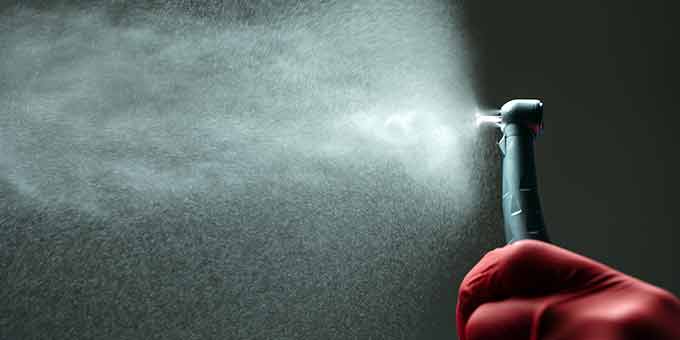
Oil-Free Tooth Compressors
These medical compressors are used to power up dental and surgical tools. These are smaller compressors that don’t require as much maintenance as other types. While these compressors don’t have enough power to keep patients breathing in ventilators, they do well enough for regular dental work.
How to Choose the Best Medical Air Compressor
As mentioned before, these machines are built so that they run continuously and do not fail. In that sense, you must look for the best products possible so that you don’t have to worry about expensive maintenance costs or replacement parts.
Here’s a list of some things you can keep in mind before choosing the best medical air compressor for your needs:
Noise
As mentioned before, most air compressors tend to be loud, but some of them may operate a bit quieter than others. Try to look for something that isn’t that loud that it affects your working conditions.
Size
Depending on what you’re using it for, air compressors come in different sizes, so it may be challenging to know which size you need. Generally speaking, you must go for a size big enough that can handle all your needs. If you want the compressor to power up tools and also provide clean air, then you’re probably going to need a bigger compressor.
Price
Air compressors come in a wide variety of prices, depending on their size, functionalities, types, and other factors. Make sure to choose a product that fits both your budget and your needs.
Power
Some compressors are used for industrial facilities, whereas others are used for smaller offices. Consider what you’re going to need while working and make a decision based on that. Remember that if you’re a dentist, for example, you don’t need your compressor to be that powerful since you only need to power up your tools.
Ease of Use
Although all compressors come with a manual, some of these products are a bit complicated to use. If you don’t want to spend several minutes trying to figure out how to power up the machine, make sure to look for one that’s more user-friendly.
Type
Finally, go for the type of compressor that suits your medical needs. We’ve laid down all the types of compressors you can currently purchase, so take a look at that section again and make a decision based on what you want for your job.
Bottom Line
Medical air compressors are excellent tools that every medical building has. Without these machines, we would be having several problems working, providing clean air to patients, and many more factors.
If you’re planning on purchasing one of these products for your medical building, make sure you do research and purchase the product that best fits your needs.
FAQs
What is a medical air compressor?
A medical air compressor is a machine used to supply compressed air that is clean, dry, and odorless. It is used in the medical industry to power medical equipment, provide clean air to patients, sterilize equipment, and more.Why are medical-grade air compressors important?
Medical-grade air compressors are essential in the medical industry as they deliver clean air to patients and power medical equipment. They must run continuously and have a specific maintenance schedule to ensure they operate correctly in medical facilities.What are the applications of medical air compressors?
Medical air compress Medical air compressors have various applications, including powering laboratory equipment, dental and surgical tools, providing clean air infiltration or the duct system, sterilizing equipment, and assisting patients who cannot breathe on their own.What are the different types of medical air compressors?
There are several types of medical air compressors available, including oil-free air compressors, lubricated reciprocating air compressors, oil-free scroll compressors, oil-free screw compressors, and oil-free tooth compressors.How do medical air compressors work?
Medical air compressors work similarly to regular compressors but with some additional features. They are comprised of pipe systems designed to supply air, and when turned on, the compressor forces large amounts of air into the storage tank. The kinetic energy produced can then power medical tools.How do I choose the best medical air compressor?
Consider factors such as noise, size, price, power, ease of use, and type when selecting a medical air compressor. Choose a compressor that fits your needs and budget and is user-friendly and easy to operate.Why do medical air compressors require regular maintenance?
Every machine that works with compressed air has parts that wear down over time, so regular maintenance is necessary to ensure the compressor operates correctly. Medical air compressors must run continuously and must not fail, so it’s essential to keep them in good condition to avoid expensive maintenance costs or replacement parts.


